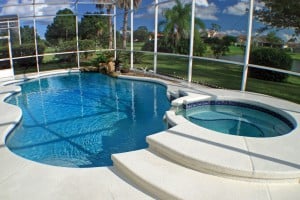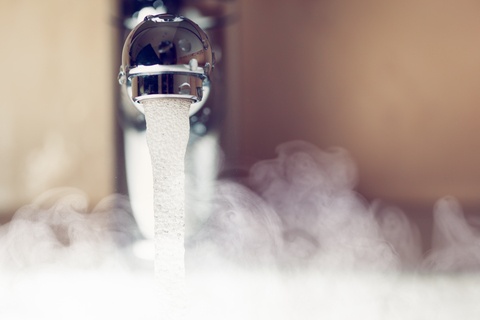There are three primary ways hurricanes do damage. First, is wind damage. Just the sheer force of 75 mile an hour winds or above sustained for several hours can do major damage. Second, is the residual effect of wind, flying debris and downed trees. Finally, flooding can be a major concern, not just in flood prone areas but even in low areas near your home. In preparing for potential hurricanes it is very important to step back and evaluate your entire property and identify which areas need attention. Let’s consider these three areas in relationship to your property.
Scott Ranck
Recent Posts
Topics: Hurricane Preparedness
The molecular composition of natural gas is simple: just 4 atoms of hydrogen bonded to 1 atom of carbon. This chemical makeup allows natural gas to be environmentally-friendly and incredibly versatile, serving every possible commercial business genre in the United States.
In a recently published report by the American Gas Association (AGA) , they found out just how important natural gas is when it comes to satisfying the energy needs of the commercial sector.
The AGA report defined the “commercial sector” as all businesses that don’t fall under residential, manufacturing or agricultural classifications. This distinction is very important because the energy needs of the commercial sector differ greatly from the energy needs of the other segments.
Topics: Natural Gas, Commercial Building
What Do Water Heaters And Smartphones Have In Common?
Posted by Scott Ranck on Feb 7, 2017 11:05:19 AM
Have you noticed the increasingly common advertising trend among the national mobile network service providers? The common tactics these carriers engage are highlighting the attributes of smartphones, including high-resolution cameras, virtual assistants, expanded storage capacity, and compatibility with other bluetooth devices.
Perhaps what’s most unique about this common advertising approach is how the smartphone itself is at the center of the value offering, while the carrier’s network provides the critical link that enables the end user to experience the full potential of smartphones. The natural gas utility industry in Florida deploys a similar approach for, but instead of featuring the smartphone as the centerpiece of the value offering, they feature the tankless water heater.
Ask The Energy Expert—Understanding The Changing World of Electric Utilities
Posted by Scott Ranck on Jan 31, 2017 3:08:27 PM
The history of the electric utility in the United States is an amazing study. I will only touch the highlights in this article. By 1879, Thomas Edison, after many failed attempts finally invented an electric incandescent light bulb. Within a few short years by 1882, the first small electric generating plant was developed to serve a small area of residences and businesses to power their electric lighting in Manhattan. Most public lighting up until this time used natural gas. Several small electric generation plants sprung up at this time but could only serve customers within one mile of the plant.
Edison, who was a better inventor than businessman, hired a young man named Samuel Insull. Over the next four decades, Insull, developed what we know today as the vertically integrated utility which combines electric generation, electric transmission and electric distribution.
Topics: electric, electric utilities
It really is quite remarkable how closely society is tied to energy.
Every aspect of society is heavily dependent upon energy. Everything Floridians do, including simply getting from Point A to Point B, to the meals we eat and the space conditioning required for the buildings we spend most of our lives in, are all completely reliant on energy. With such a strong correlation between energy and society, it’s not a stretch to conclude that improving how energy consumption in our buildings actually improves our society at large.
In following this logic, those who consume larger amounts energy, such as commercial and industrial enterprises, essentially have a greater potential to positively impact society by improving how they consume energy. Business owners and commercial building operators have many options for increasing efficiency in the way in which their buildings consume energy.
Topics: Natural Gas, Commercial, Rebates, Businesses
Well, it is that time again. The first early morning cold snap has come to Florida. This caused me to think about customer calls wondering why utility bills have risen. The cost to heat a home is actually higher than the cost to cool a home. Fortunately for us here in Florida, heating is a very small percentage, approximately only 8% of our total energy costs. In northern states the cost of heating is their number one energy expense.
Topics: Energy Conservation, Residential, Natural Gas, natural gas appliances, florida
Topics: safety, florida, hurricane matthew, hurricane
Discover the Top 3 High Performance Home Upgrades That Could Lower Your Utility Costs
Posted by Scott Ranck on Jul 19, 2016 3:31:44 PM
I had an interesting experience this past week; I would like to share with you. I had an appointment to go to a customer’s home and perform an energy audit. An energy audit is where a trained professional comes in and looks at all your home’s energy uses. I examine everything about the home, insulation levels, window quality, and examine all the equipment in the home.
Topics: Energy Conservation, Residential, Natural Gas, Energy Efficiency, natural gas appliances, home remodel, tankless water heaters, Upgrades, Natural Gas Water Heaters, How To's
3 Ways To Achieving The Perfect Temperature For Your Pool This Summer
Posted by Scott Ranck on Jun 23, 2016 11:40:30 AM
Pool heating is not a one size fits all proposition. There are many homes with swimming pools in Florida and with our climate the swimming season may be all year long. I get many questions about pool heating and the best way to heat your pool.
Topics: Residential, Natural Gas, propane, electric, Pool Heaters, summer
Many times over the past several years while investigating high utility bills, I’ve discovered a hidden culprit to escalated energy costs! This thief has been found in both residential and commercial situations but especially in restaurants.
Topics: Energy Conservation, Residential, Natural Gas, Energy Efficiency, Commercial, propane
Comment on This Post
Submit your comment – plus, see what other people are saying.











